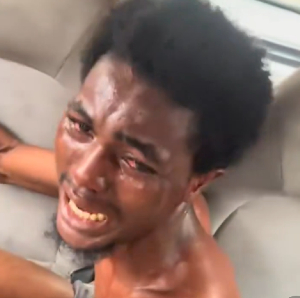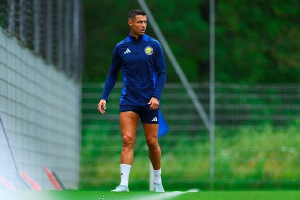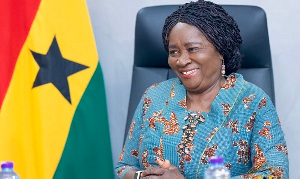On the Online Sociology Degree website, it is clearly stated in “How Politicians Misuse Statistics”:
“There are three kinds of lies: Lies, damned lies and statistics. It’s not true—statistics don’t lie, but the people who use them often do. And since few people have the patience, the access or the knowledge to read and interpret all of the data behind the statistics, the manipulators—be they snake-oil salesmen or politicians—can use actual, non-lying statistics to support a lie and make you believe it…
“Nearly every statistic that you hear from a politician is distorted in some way to appear more favorable to his position. He’s not lying—he’s selectively reporting the statistics, or relying on data that was skewed to begin with. The truth is that politicians…use statistics to manipulate and sway the public…
“Anytime a politician or media source reports a statistic, there’s a good chance that people who oppose the policy or politician will try to debunk it. There’s a good chance that the truth lies somewhere between the two, and understanding both sides of the issue will help you find the truth.”
WHAT IS THE FUSS ALL ABOUT?
It has widely been reported in the media that the Institute of Economic Affairs (IEA) is considering a proposal to organize and even moderate a separate presidential debate between President Mahama (the National Democratic Congress, NDC) and Akufo-Addo (the New Patriotic Party, NPP). Admittedly, the IEA has been doing this for some time now in the Fourth Republic.
This is welcome news as President Mahama was probably the first to throw out this challenge to his principal political rival, Akufo-Addo. On the surface of it, though, this is no news at all until one quickly realizes that the IEA supposedly reached its tentative decision, based on the results of a survey it claimed to have conducted, in which their targeted survey respondents expressed an interest in seeing an exclusive presidential debate between the nation’s two leading political rivals.
Unfortunately not much is known about this survey and more particularly, how it was conducted in the first place.
We are talking about the methodology the IEA’s survey designers used and the survey’s associated components.
Here are a few questions/issues we have always wanted to ask after reading about the survey in the media:
• What is the margin of error?
• Whether questionnaires rather than direct phone or investigator-respondent interviews were used.
• How did the investigators/researchers determine the demographic and geographic distribution of their target respondents/participants? That is, how the IEA located its target respondents/participants.
• What is the sample size?
• How truly representative is the sample size reflective of the general public or population size (men and women of voting age)? In other words, how was the sample size normalized and standardized to reflect popular sentiments, perceptions, and opinions? We are simply referring to sample size determination.
• Whether the IEA offered any incentives or financial inducements to its target respondents/participants.
• Quality of both investigators and target respondents/participants.
• How the survey was funded, and who funded it?
• The political and ideological cast of the respondents/participants and of the investigators.
• How the questionnaires were designed—if in fact questionnaires were used, and finally, whether the investigators/researchers asked respondents/respondents leading questions.
Again, these are just a handful of objections/reservations we may want to pose to the designers of the survey.
Or raise in connection with the survey.
A fair, objective suit of answers to these objections/reservations may help reduce the margin of error or any suit of potential biases, for better or for worse.
This is important because research institutions and politicians affiliated with them have used statistics to skew or shape public opinion in their favor.
We may as well recall Mark Twain’s “three kinds of lies”—which he have wrongly attributed to Benjamin Disraeli—which went like this: “lies, damned lies, and statistics.”
It is also however possible that the investigators/researchers cautiously worked these objections/participants into the survey.
We are also bringing up these questions because the NDC in the past blamed the IEA for doing the bidding of the NPP.
Today the NDC sees the IEA as a bullying “headmaster,” as Kofi Adams put it recently. Omane Boamah has characterized the IEA as “NPP surrogate.”
Koku Anyidoho, on the other hand, has warned the IEA not to “practice civil society dictatorship.”
Where do all these negative characterizations and warnings leading us? Are they justified? For instance, in one survey the IEA conducted in 2015 the civil society organization’s survey investigators concluded that President [Mahama] “as the most second corrupt public office in the country.” Edward Omane Boamah, the Communications Minister of the NDC, had this to say:
“The NPP can afford to misconduct themselves because surrogates like the IEA and the rest will always be defending them…The IEA was quick to distance themselves from their own report which indicted the Kufuor government and was posted on their own website; but in this case they tell us that our defense to their survey which unfairly attacks the President [Mahama] is pathetic. They refuse to tell us how they came by their conclusions yet they want us to treat as credible.”
As a matter of fact, Boamah was brutally clear about the IEA’s double standards in matters of public opinion and policy, both of which affect the extreme inter-partisan polarities of the country’s duopoly, the NDC and the NPP, especially the question marks the IEA and its investigators raise regarding the quality of public perception vis-a-vis the style of incumbent governance.
On the other hand here is what Asiedu Nketia, the General Secretary of the NDC, also reportedly said about the ideological-political marriage of convenience between the IEA and the NPP:
“Even when they called for contributions after speakers were done speaking, they did not allow me to speak and I didn’t understand why they did that to me. Their attitude showed that they had an agenda and I believe that the IEA works with the NPP…We want to know why the IEA have tagged us as corrupt and so they need to explain to us. Even a little girl can identify that people who spoke on the corruption issue were NPP.”
Then, suddenly, the leadership of the NDC made a bold decision that it was going to review its longstanding and turbulent relationship with the IEA, including the possibility of severing ties with it [the IEA].
What has since become of this decision? Could it have been an empty threat or paranoia on the part of the leadership of the NDC?
On the other hand if this ostensible acrimony between the IEA and the NDC still remains a standing issue, then the NDC had better look elsewhere for a “neutral” platform to moderate this debate?
The NDC might want to embrace the People’s Forum-Ghana, one of the first groups to offer a platform to host this national debate when President Mahama first threw out a challenge to Akufo-Addo, during which the former charged the latter for making “a lot of contentious statements” regarding Ghana’s political economy.
But what if the leadership of the NPP refuses to join this national debate and rather insists on the IEA moderating it?
We do not want to think about the implications of this question. It is a rhetorical question, by the way.
On the other hand, there is no doubt in our minds that the proposed debate between the two presidential candidates will be a walkover for President Mahama.
This is not because President Mahama is a better politician or policy analyst—far from it—say.
Of course, the president has many question marks hanging over his management of the state, resources, and the people who work directly under him—his ministers for the most part.
We are talking about his technocratic competence as a democratically-elected leader of a sovereign nation-state.
Perception and actual instances of political corruption in his government are the other question on the minds of ordinary Ghanaians.
No doubt these questions are part and parcel of an ongoing national discourse.
Rather this is because President Mahama is a better communicator, foremost, and second, Akufo-Addo is not sufficiently informed in matters of political economy, development economics and sociology, international relations, and fiscal policy.
This is why his vice, Mahamudu Bawumia, has taken on his major proxy wars while he goes around the country idly begging Ghanaians to “try him” as though he were “fose,” secondhand clothing.
On the contrary, President Mahama has the added advantage of being a political insider, first and foremost, as a Vice President of a major political party and second, as a sitting president who enjoys some popularity among Ghanaians.
However these reasons alone may not in and of themselves, technically, amount to much by way of public diplomacy and technocratic competence, and by way of making a significant shift in public opinion in his favor from the point of view of electoral politics.
What is more, the president and his party have incredible and daunting social, political, bureaucratic, and economic hurdles to negotiate successfully in order to convince some doubting minds in the body politic.
Akufo-Addo’s leadership, on the other hand, is in tatters, a virtual standstill, so too is his party. The IEA, like the parliamentary and the judiciary and the presidency, appears to be or is just as corrupt, including their leaderships.
Fortunately, the autocratic headmastership of the IEA and the civil organization’s arbitrary use of the little political power it has are gradually coming to light.
But the IEA cannot be solely blamed for its seeming instrumentalist arbitrariness and strategic failures, as when it probably “secretly” sought the audience of Madam Hannah Tetteh, the Foreign Minister—and possibly others in the Mahama government—regarding the NDC’s participation in the upcoming 2016 national presidential debate without so much as bothering to consult with the appropriate bodies—either the Functional Executive Committee (FEC) or the National Executive Committee (NEC)—whose jurisdictions handle these matters—undeniably undercuts the credibility of Kofi Adams, thus also questioning the latter’s and his colleagues’ misplaced anger against Madam Jean Mensah, the Executive Director of the IEA, in particular and the IEA, itself, in general.
But if, indeed, the IEA consulted with Madam Hannah Tetteh as Madam Jean Mensah has alleged, then it begs the question why the former did not the latter, that President Mahama will be traveling in September for a United Nations’ General Assembly meeting as Abraham Amaliba, a high-profile member of the legal team of the National Democratic Congress (NDC), has also claimed. In fact, this is what he said The Big Issue (Citi FM):
“The dates that they have even proposed, on those periods, the president will be out on a General Assembly meeting at the UN…”
If all these facts are true then Amaliba may have preempted the office of the Foreign Ministry, just as Madam Hannah Tetteh may have also preempted the offices of the FEC and the NEC, after all it is the latter’s [Madam Tetteh’s] jurisdiction to officially plan or be in the know of the president’s itinerary.
In that case, how does Koku Anyidoho justify his ferocious attack of Madam Tetteh? If not, then who is lying? And why? Then again, why is everyone passing the buck? Why is everyone running from his/her responsibilities and in circles, familiar scenarios that can be likened to the concept of political football and equalization?
Here too, ironically, we also have NPP men attacking Madam Charlotte Osei, the gracious Chairwoman of the Electoral Commission (NDC), at every opportunity, while NDC men are attacking Madam Mensah.
Yet it is apparent the NPP is in “love” with Madam Osei when the leadership of that party wrote her secret “love letters,” even as the NDC also claims Madam Mensah is in bed with the NPP.
And yet again, the NPP is claiming among other charges that the NDC is also in bed with Madam Osei!
How many political “vaginas” does Madam Osei have? Is she a political “nymphomaniac”?
Can she really handle these thieving duopolistic masochists in her political “bed”?
It appears both parties are moving away from their kleptomaniacal tendencies to one of kleptomaniacal misogyny—with both gunning for Madam Osei’s political “vaginas” as though they [the NDC and the NPP] have irreversibly overdosed on emotional Viagra! This was what actually happened to Gentil Ramirez Polania, a 66-year-old Columbian man who overdosed on Viagra in an attempt to impress his newly-found girlfriend, only to have doctors amputate his penis after several days of unceasing erection during which gangrene set in (Nick Renaud-Komiya).
That said, the afore-cited reservations/questions which we have painstakingly raised in connection with the survey modalities [used by the IEA] will probably help us question why the IEA, all of a sudden, is showing signs of intellectual weakness and ideological, institutional and moral fatigue, and of backtracking on some of its earlier mandates and policy decisions if, indeed, as we have covertly and overtly said elsewhere its sample size is “scientifically” reflective of the general population [at least of those within the constitutionally-mandated voting-age bracket].
Well, Wyclef Jean and Shakira sing “Hips Don’t Lie,” but can statistics too lie—much the way our wicked, coldblooded politicians shamelessly lie—without the sneaking element of conscious human interventions and manipulations? We will live to see how this plays out in the days and years to come!
We shall return with the concluding part (Part 2). Stay tuned.
REFERENCES
Ghanaweb. “Mahama Dares Akufo-Addo To Debate.” March 14, 2016.
Ghanaweb. “IEA Is NPP ‘Surrogate’—Omane Boamah.” March 1, 2015.
Ghanaweb. “IEA Considers Separate Debate For Mahama, Akufo-Addo.” May 10, 2016.
Ghanaweb. “Asiedu Nketia: IEA Is Working With The NPP.” May 4, 2015.
Ghanaweb. “IEA Not ‘Headmaster’ To Summon NDC To Debate—Kofi Adams.” May 11, 2016.
Ghanaweb. “Group Offers To Organize Mahama—Akufo-Addo Debate.” March 17, 2016.
Ghanaweb. “Akufo-Addo Accepts Mahama Debate Challenge.” March 15, 2016.
Ghanaweb. “Hannah Tetteh Not Bigger Than NDC—Anyidoho.” May 16, 2016.
Ghanaweb. “Mahama Won’t Be In Ghana For IEA Debate—Amaliba.” May 14, 2016.
Nick Renaud-Komiya. “Man’s Penis Amputated After Viagra Overdose.” Independent. September 23, 2013.
Opinions of Tuesday, 17 May 2016
Columnist: Kwarteng, Francis














